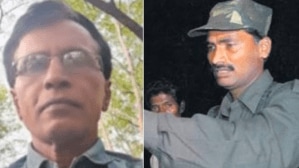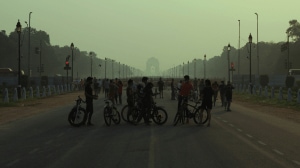Pak’s offer to resume Lahore process rejected
NEW DELHI, FEB 20The Pakistani military regime's offer to resume the Lahore process withIndia has been outrightly rejected in official cir...

NEW DELHI, FEB 20
The Pakistani military regime’s offer to resume the Lahore process withIndia has been outrightly rejected in official circles while formerdiplomats warned of `ulterior’ motives behind Islamabad’s move aimed atfocussing international attention on Kashmir issue ahead of US PresidentBill Clinton’s visit here next month.
Pakistan Foreign Minister Abdul Sattar said in a television interview onthe eve of the first anniversary of the Lahore summit that Islamabad wasprepared to relaunch the derailed peace process. Officials here saidPakistan has to create the "right atmosphere" for any "meaningful dialogue".For this to happen, Islamabad had to stop cross-border terrorism and put ahalt to hostile propaganda against India, they stressed. They noted thatIndia had always desired to build a relationship of peace and friendshipwith Pakistan based on principles.
"Pakistan’s armed intrusion and aggression in Kargil was, of course, aviolation of the Line of Control, but more than that, it was betrayal oftrust," they said. Islamabad must, therefore, facilitate restoration oftrust through "actions" on the ground by abandoning its state-sponsoredcross-border terrorism against India in Jammu and Kashmir and elsewhere,they contended. Former Foreign Secretary S K Singh said the military rulersof Pakistan had belatedly started suggesting that the Lahore process betaken forward. However, Islamabad had said nothing about three relatedaspects.
"First, how does Pakistan reassure the world that it can be relied upon tofulfil commitments such as those inherent in the Lahore declaration?" Singhasked. "The question is important because after having lulled us into asense of euphoria, they proceeded to attack us in Kargil which, manifestly,they were preparing even when they were negotiating arrangements for thefuture security of the region with us at Lahore," he said. "Second, theyneed to give us a timeframe for stopping the export of terrorism from theirside of the border. Pakistan also must recognise that religiousfundamentalist outfits like Lashkar-e-Toiba and Harkat-ul-Mujahideen towhich they remain committed would be brought under some kind of disciplineas far as India was concerned, Singh said.
The Pakistani minister also gave clear indications of Islamabad favouringUS mediation on Kashmir. "What Clinton has in mind as a means of propellingthis stalemate into a forward gear _ of course we hope _ we will hear fromhim should he come to Pakistan." India has stuck to its position that itwill not accept any third party mediation, involvement or outsideinterference and that the Kashmir issue had to be resolved only bilaterallybetween India and Pakistan. New Delhi has conveyed to Washington that peoplein India would not approve of a visit by Clinton to Pakistan in the backdropof Pakistani military ruler Pervez Musharraf having masterminded the Kargilincursions.
A former diplomat, who spoke on condition of anonymity, said such offers oftalks from Islamabad were nothing new for India as on most occasions in thepast, the ulterior motive had been to utilise the occasion tointernationalise the Kashmir issue. Officials said India’s abiding desire tobuild a relationship of peace and friendship with Pakistan was based onprinciples and that New Delhi has made it clear that it harbours no enmitytowards the people of Pakistan. New Delhi, they argued, had taken theinitiative towards improving relations, as it did again last year by puttingin place the composite dialogue process to build confidence and trust,establish a stable structure of cooperation and address all outstandingissues.
Prime Minister Atal Behari Vajpayee had sought to reinforce this approachthrough his historic visit to Lahore in February last year. Vajpayee and thethen Pakistan Premier Nawaz Sharif had on February 21, 1999, signed theLahore declaration which said both sides would intensify their efforts toresolve all issues including the issue of Jammu and Kashmir, refrain frominterference in each other’s affairs, intensify their composite dialogueprocess and take immediate steps for reducing the risk of accidental orunauthorised use of nuclear weapons.






- 01
- 02
- 03
- 04
- 05

























